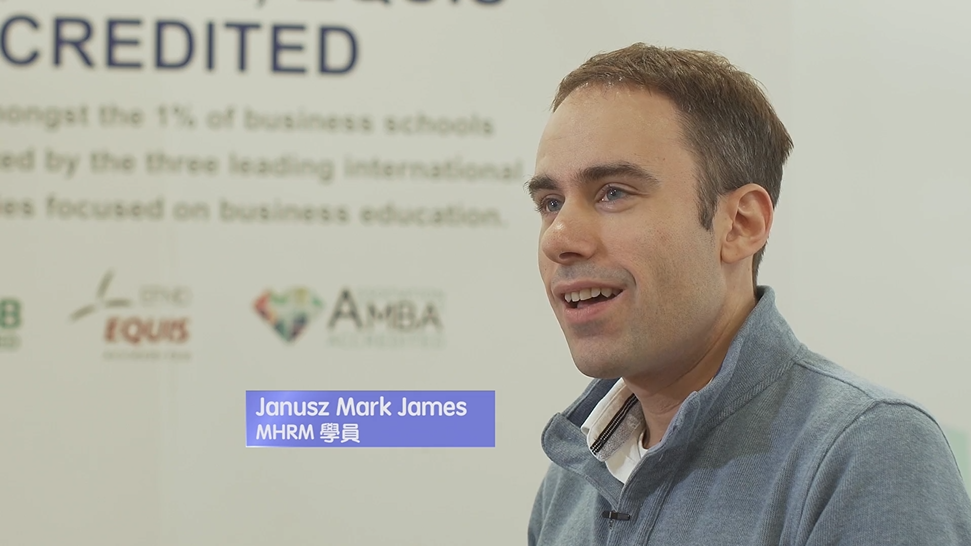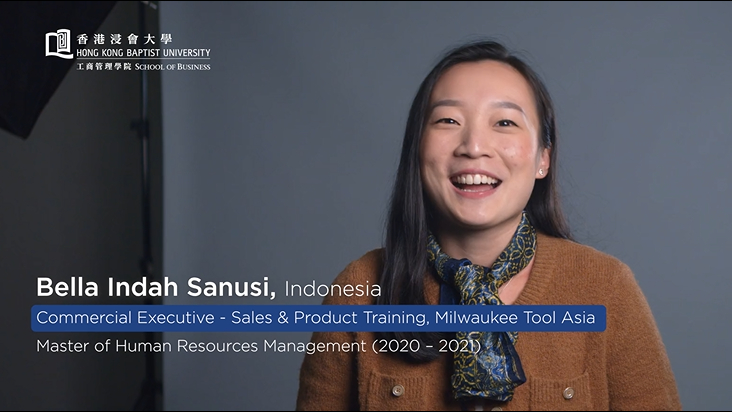Curriculum
The programme uses a range of participative and work-based learning approaches that enable students to investigate issues or problems of concern, create useful information and options and devise HR management plans to deal with the problems identified.
.jpg)
.jpg)
Weekend Classes
The programme is offered on a one-year full-time or a two-year part-time study mode. Most of the courses are taught over weekends.
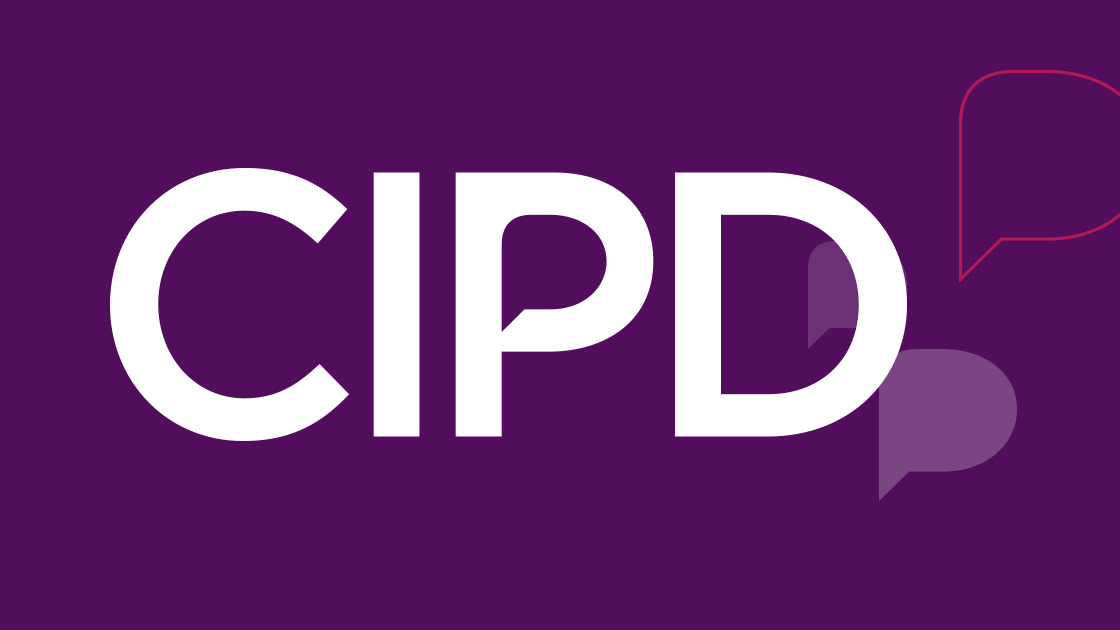

The programme is accredited by the Chartered Institute of Personnel and Development (CIPD), Europe's largest professional institute for HRM and HR development. MHRM students who register as CIPD student members will have their degree recognised as the CIPD's Advanced level qualification and automatically leads to the CIPD Associate membership after graduation.
Student Sharing
Study Mode & Class Schedule


Part-time
- 2 years
- Saturdays and Sundays, 9:00a.m. - 6:00p.m.
- Occasional weekday evening classes


Full-time
- 1 year
- Saturdays and Sundays, 9:00a.m. - 6:00p.m.
- Occasional weekday daytime and evening classes
Assessment Methods
The assessment emphasises project-based learning. Each course requires the completion of individual and/or group projects. The nature and scope of the projects vary according to course and learner needs.
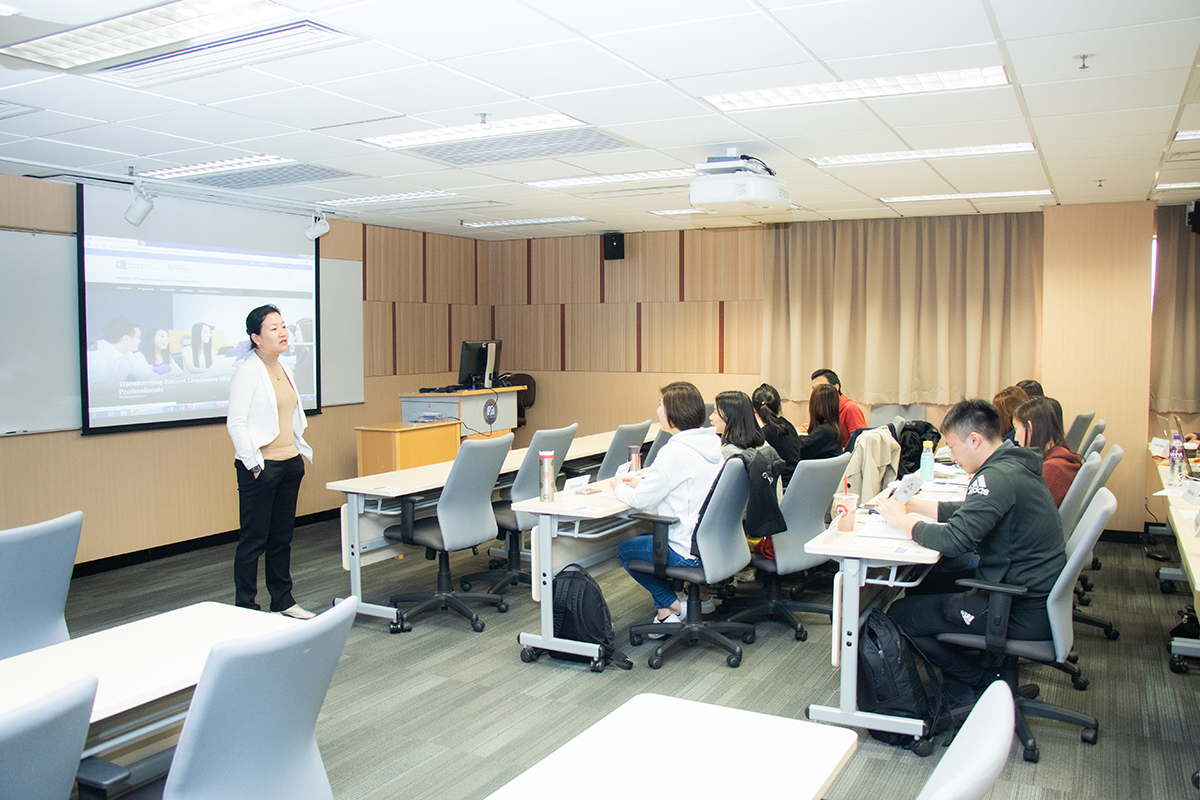

A combination of assessment methods are normally used in one course including class discussion and participation, assignments, tests, presentations and other methods of academic assessment. The course assessment methods will be shown in HKBU HRM course outline.
Curriculum
Students are required to take a total of ten courses (i.e. 30 units) including 7 core courses and 3 elective courses for this CIPD accredited MHRM programme.
Core Courses (21 Units)
The major purpose of this course is to provide students with a) an appreciation of the major theoretical perspectives relating to strategic human resources management, b) an understanding of HRM strategies and environmental factors affecting these strategies, and c) issues and activities associated with the effective and socially responsible staffing of organisations.
The course offers an overview and appreciation of the structure and management of the human resources Learning and development (L&D) functions within the organization. Students will acquire knowledge and understanding of the theory and principles underlying L&D practice, the techniques and skills required for professional L&D practitioners, as well as an understanding of the current issues in L&D.
This course provides an overview of the philosophy and principles of performance management and the design of effective performance management systems. Specifically, it examines major concepts, techniques, and practices in designing and implementing performance appraisal and other key performance management practices.
This course takes a pragmatic look at one of the most controversial and critical issues facing all kinds of organization, that is, how to reward employees. It focuses on the design and administering of a remuneration system that rewards employees fairly while motivating outstanding performance.
This course aims to equip students with the theoretical underpinnings for understanding human behaviour in the context of work and the application of this knowledge to the design of: (i) strategies for the effective utilisation of an organisation’s human assets, and (ii) a work environment that enhances the quality of work life. Special stress is placed on the changing nature of work within the Asia Pacific Region and how this issue presents an ever-increasing challenge to employers and employees alike.
This course introduces the fundamental concepts of research design and the collection and analysis of data in the context of Human Resources Management. Students acquire the necessary knowledge and skills to conduct practical HR research and consultancy projects. In addition, this course also equips students with the technical knowledge and knowhow to use data analytics for effective managerial decision making.
Ethics, culture and governance are three pillars of corporate sustainability. They are building blocks for improving employee trust, engagement, and commitment. This course aims to promote ethics management with emphasis on the role of HR in shaping organisational culture and reinforcing good corporate governance.
Elective Courses (Select 3 courses, 9 units)
This course introduces various concepts on management of employee relations as well as work-family interface and the dynamic relationships among the different actors constituting the employment relations scene. In addition, it covers employment and related legislation that is commonly used by HR professionals in an everyday situation. A practical and contemporary approach is taken, exposing the students to the full gambit of employee-management relations in the workplace.
This course focuses on the human resources issues and problems encountered by international companies in Mainland China today. It introduces to the students current and practical issues regarding employment and HRM in Mainland China. This course prepares participants to make decisions on various HR policies and practices such as recruitment of local employees and management of expatriates, performance and rewards, management development and localisation, and the complexities of PRC labour law. In addition, we will cover HR and Human Capital Management strategies to be more value creating and adding to the delivery of HRM.
This course is designed to provide students with knowledge, issues and skills for developing and maintaining international HRM systems, designing and managing expatriate assignments and managing cultural diversity. Special emphasis is places on the linkage of IHRM practices and policies with an organization's global business strategy. This course covers key issues in international employee relations, comparative HRM practices, and multi-national corporate social responsibility as related to HRM.
The major purpose of this course is to enhance students understanding of the importance of building an engaged workforce and a healthy workplace. It covers major concepts, techniques, and practices in a) developing and executing an engagement campaign, b) promoting workplace wellness, and c) delivering services associated with building a healthy and productive workforce.
This course aims to strengthen students’ diagnostic and analytical skills necessary to support a data-driven approach to talent management. Talent management involves attracting, identifying, developing, engaging, retaining, and deploying employees who drive organizational success. By learning how to formulate inquiries and apply statistical techniques to conduct diagnostic analyses and predictive analyses, students will be able to provide evidence-based recommendations for talent management issues and connect talent management initiatives to organisational effectiveness. Knowledge and skills in communicating quantitative evidence to support talent management initiatives and decisions will also be included in this course.
This course is designed to enhance students’ awareness and ability to critically evaluate the impact of technology on the effectiveness and efficiency in people management strategies and operations. The course will cover the project planning and application of HR technologies to support different aspects of the employee lifecycle, as well as industry trends in emerging technologies, digital HR transformation, and change management.
This course is designed to enhance students’ awareness and ability to critically evaluate the impact of technology on the effectiveness and efficiency in people management strategies and operations. The course will cover the project planning and application of HR technologies to support different aspects of the employee lifecycle, as well as industry trends in emerging technologies, digital HR transformation, and change management.
Human Resource Analytics is a process to discover patterns in data and turn data into insights and actionable recommendations by making use of statistical techniques, computer programming skills and human resource (HR) domain knowledge.
HR is changing to be more data-driven. HR managers and practitioners are required to make evidence-based decisions by identifying and quantifying key people drivers to explain HR issues, predict trends and inform decision-making. Human resource analytics is an essential skill for making better strategic HR decisions.
This course aims to develop students’ knowledge, skills, and ability to diagnose, analyze, evaluate, predict, and make decisions using various HR and organization data and metrics. Students will learn various methods and techniques to collect data, hypothesize models and conduct analysis using statistical software to evaluate HR issues, make predictions and give evidence-based recommendations. Future development on human resource analytics will also be discussed.
Remarks: Elective courses will be offered subject to the availability of teaching resources and the number of student enrolments, while the course registration will depend on the availability of places. The Department reserves the right not to offer any given elective courses(s) in any academic year.


* These courses have been included in the list of reimbursable courses under the Continuing Education Fund. The Master of Human Resources Management programme offering these courses is recognised under the Qualifications Framework (QF Level 6). [QR Registration No.: 10/000440/6, QR Registration Validity Period: 01/09/2010 - on-going]
Students are required to participate in professional development activities (PDA) to enhance their HR management relevant knowledge and skills through the out-of-classroom learning experience. Full-time students are required to participate in at least 6 PDA within their 1-year of study (in which 3 should be activities offered by the CareerLink@BUS). Part-time students are required to participate in at least 4 PDA within their 2-year of study.
Graduation
The awarding of the MHRM Degree is on the basis of fulfillment of the following graduation requirements and the approval of the Senate.
A candidate should have:
- Completed an approved programme of study; and
- Submitted all coursework required; and
- Obtained a cumulative GPA of at least 2.50.
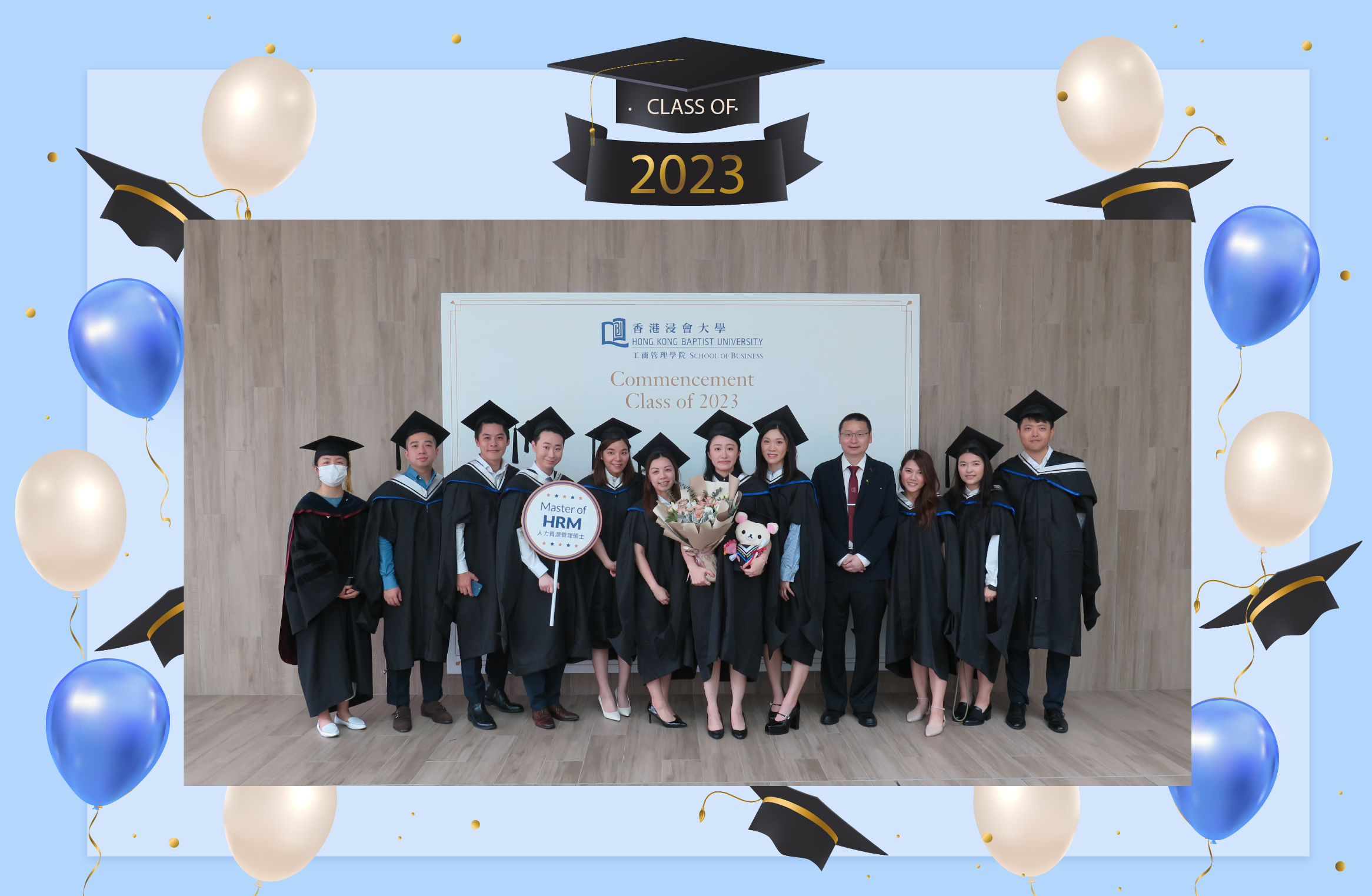

Overall cumulative G.P.A. of 3.67 or above, with no course grade below B- and no repeated courses.
.png)
.png)
Overall cumulative G.P.A. of 3.40 – 3.66
.jpg)
